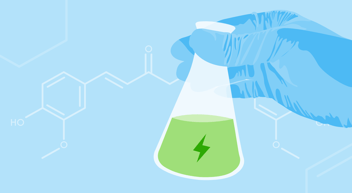When you were in graduate school, did anyone tell you that shopping would be such a big part of the job? It’s true. Designing a successful experiment involves more than just formulating your research question and hypothesis. You also need to plan your resources carefully, which requires purchasing the right lab supplies. The materials you select are sometimes just as critical to your experiment’s success as the design itself, but you need to make sure you don’t waste precious time on the ordering process. As the leading AI-driven lab supply marketplace, ZAGENO has compiled a list of key considerations to help streamline choosing supplies for your next experiment.
Table of Contents
- Experiment protocol and supply lists
- Competitive vendor selection that saves money
- Matching product specs and experiment needs
- Product reviews and recommendations
- Quality vs. cost
- Product samples
- Asking questions
Seven important things to consider when buying lab supplies for your next experiment:
1. Details matter: Experiment protocol and supply lists
Just like a well-planned recipe ensures the success of a complex dish, a detailed experiment protocol is key to a smooth research process. Use your comprehensive protocol to carefully list every item needed for your experiment, sorting them into what’s already in your lab and what needs to be purchased. This upfront planning eliminates last-minute scrambling, allowing you to stay organized and avoid frantic searches for supplies when it matters most.
Looking for more resources on how to create an experiment protocol? Try these:
Build your supply list
Having a comprehensive supply list is essential not only for planning your experiment but also for budgeting. By listing out all of the supplies in advance, you can more effectively evaluate costs, assess alternative vendors, and give yourself enough lead time in case items are backordered or become unavailable.
Key steps to create a lab experiment supply list:
- Carefully read the experiment protocol to understand the exact steps and materials needed.
- Divide the supply list into categories like:
- Glassware: Beakers, Erlenmeyer flasks, graduated cylinders, test tubes, petri dishes
- Measuring tools: Pipettes, burettes, syringes, measuring spoons
- Heating equipment: Bunsen burner, hot plate, heat resistant mat
- Safety gear: Safety goggles, lab coat, gloves, apron
- Chemicals: Specific chemicals needed for the experiment, including indicators
- Other equipment: Stirring rods, forceps, watch glasses, rulers, balances
Pro-tip: With over 40 million SKUs from 5,300+ global brands, ZAGENO offers an extensive range of products across both major and niche categories. AI-powered tools simplify the product identification and selection process, making it more intuitive and efficient for researchers to find the right supplies for their experiments.
- Consider quantity. Estimate the amount of each item needed based on the number of trials and participants.
- Check for compatibility. Ensure chemicals and materials are compatible with each other and the experimental conditions.
- Organize your list in a logical order, grouping similar items together.
Pro-tip: Scientists save on average 6.2 hours/week finding and ordering products using ZAGENO. Further, our reorder and list features make it easy to quickly reorder favorite supplies, collaborate with other ordering users in your lab, and catch good deals before they expire.
Integrate digital tools into lab planning
Just as you rely on advanced instruments and tools for your research, you should also leverage digital tools to boost lab efficiency and collaboration. Laboratory Information Management Systems (LIMS), Electronic Lab Notebooks (ELNs) and AI-driven marketplaces like ZAGENO help scientists manage experiment protocols, track supplies in real-time, enhance collaboration, and optimize ordering processes. If you’re not already using such tools, now is a great time to integrate them into your workflow.
Read more: Top 6 Tools for Lab Managers to Enhance Operations in 2024
2. Competitive vendor selection saves money
While there are several major distributors for lab equipment, it’s worth exploring other vendors for potential cost savings and to tame long tail spend. With a variety of suppliers offering similar products, you may find cheaper alternatives, especially for bulk consumables like gloves and pipette tips. Additionally, many vendors offer discounts or special promotions that could help stretch your lab’s budget.
Using an AI-driven marketplace like ZAGENO allows you to compare prices across multiple suppliers quickly. This not only saves time but also ensures that you are maximizing your budget. Whether it’s consumables or specialty reagents, it’s important to stay flexible and keep an eye out for the best value.
Pro-tip: Competitive pricing saves money. Period. An agricultural biotech achieved an 18% cost reduction year-over-year through ZAGENO's automated ordering and competitive pricing tools. Another client reported $80,000 in savings from price comparisons alone in just one year.
Sourcing from global suppliers
In the age of global research, it’s important to consider suppliers from around the world. Depending on your location and the type of research you're conducting, it may be worthwhile to source materials from international vendors. Global suppliers can sometimes offer unique products that aren’t available locally, and they may also provide cost-effective solutions that would otherwise be expensive in your home country. Just be mindful of international shipping timelines and potential customs delays.
3. Make sure it matches: Product specs and experiment needs
Not all reagents or consumables are created equal. For example, does your experiment require HPLC-grade solvents, or can standard-grade solvents suffice? Are monoclonal antibodies necessary, or would polyclonal ones work just as well? Carefully review product specifications to ensure you’re getting exactly what you need for your experiment.
Many scientists overlook the importance of aligning their experiment’s specific needs with the characteristics of the product they’re purchasing. Wading through product specifications can sometimes seem like a daunting task, but a closer look at the product sheets can save you from wasting time and resources on materials that aren't right for your experiment. ZAGENO’s platform provides detailed product information and specifications, so you can make informed decisions and avoid unnecessary purchases.
The rise of customizable and on-demand reagents
A trend gaining momentum in lab procurement is the availability of customizable reagents. Whether you need a specific peptide synthesis, an antibody conjugate, or a custom formulation, there are now suppliers that allow you to tailor your reagents to your exact experiment specifications. This provides greater flexibility and ensures you are getting precisely what you need. Platforms like ZAGENO enable you to quickly identify and evaluate vendors offering custom reagents, helping you save time on procurement and ensuring your materials are exactly suited to your experiment.
4. Check product reviews and recommendations
The vendor selling a product doesn’t always guarantee its quality. Before making a purchase, check reviews, publications, or ask your colleagues about the product’s performance. Has it been validated in published studies? Are there reviews from trusted sources that speak to its reliability? If you’re unsure, recommendations from other researchers can help you identify products with a proven track record of success.
Navigating the complexity of vendor trustworthiness
Even trusted vendors can sometimes have products that fail to meet expectations. This is why it’s crucial to read peer-reviewed publications, product reviews, and conduct a little background research before placing an order. You can also ask colleagues or fellow researchers for recommendations. Established online platforms like PubMed offer a wealth of peer-reviewed literature where you can find validation for a reagent's effectiveness or discover studies that have used similar products.
Collaborating with industry experts
One of the best ways to ensure you're selecting the right products is to collaborate with industry experts. ZAGENO’s white-glove customer support team is available to help identify in-stock products that meet your needs. Other resources include external consultants, industry experts, and other specialized labs. Leveraging their knowledge and networks can save time and prevent purchasing the wrong products. Additionally, some suppliers even offer consultation services to help match products to your needs, providing personalized recommendations based on your experiment’s specifications.
5. Savings without sacrifice: Quality vs. cost decisions
When funding is limited—perhaps due to a failed grant or a restricted budget—you may feel the pressure to choose cheaper alternatives. While cost is important, never compromise on quality. A low-cost product that doesn’t perform as expected can lead to wasted time and resources, ultimately costing you more.
In times of budget constraints, it’s essential to find a balance between cost-effectiveness and quality. Low-cost alternatives might seem appealing, but if they fail to meet your standards or compromise your results, the initial savings can quickly become insignificant.
ZAGENO’s platform allows for savings without scientific sacrifice, empowering you to compare alternatives that fit your budget while maintaining high standards for quality. You can explore various brands and manufacturers to find a price point that works for you without compromising on the reliability of the products.
Strategic budgeting for research
Even with a limited budget, it’s possible to be strategic about where to spend. Consider focusing your budget on high-impact items—such as critical reagents or instrumentation—while sourcing more common consumables like gloves or pipette tips from bulk suppliers or discounted vendors. Understanding where to allocate your funds based on the critical nature of each product is a key element of smart lab budgeting. For some tried and true fundamentals, check out this Science article.
6. The power of product samples
If you’re hesitant to invest in an expensive product, consider requesting a sample before committing to a purchase. Many vendors will provide small sample sizes for free or at a reduced cost. This allows you to test the product’s effectiveness without committing to a full-sized purchase. Don’t hesitate to reach out to vendors to inquire about sample sizes, especially for high-cost products like antibodies, enzymes, or reagents.
The value of sample testing in experimental planning
Test samples not only help you evaluate a product’s performance but also reduce the risk of wasting valuable funds on materials that don’t deliver. Many suppliers offer sample sizes that allow you to validate the product's effectiveness in your experiment. Additionally, requesting samples can offer insight into a product’s shipping times, handling conditions, and customer service interactions, which all contribute to your decision-making process.
7. Ask questions: Where to seek expert opinions
Sometimes, no matter how much research you do, you might still feel uncertain about the right product. Don’t hesitate to ask colleagues, your PI, or research communities for advice. They may have firsthand experience with the product or alternative suggestions that can save you time and frustration.
Expanding your network of experts
Networking is a powerful tool in scientific research, especially when it comes to product selection. Connecting with other professionals through conferences, webinars, and industry events can open up new avenues for recommendations and product suggestions. Additionally, online platforms like ResearchGate and other specific scientific forums can offer opportunities for collaborations and insights into the latest advancements in lab products.
Take advantage of every available resource
If you're part of a lab share, incubator, or accelerator, make sure to fully utilize the benefits available to you. Take every opportunity to network with fellow startups, participate in events, and collaborate to get the most out of the community. Building strong relationships with peers can open doors to valuable partnerships and support systems. Also, actively seek feedback from mentors to help refine your business strategy and product development. Don't forget to make the most of office hours with external experts provided by the incubator—they can offer invaluable insights.
Read: How Startups Can Maximize the Biotech Incubator Experience
Scientific success with smart, stress-free lab supply shopping
Choosing the right lab supplies can feel overwhelming, but it doesn't have to be. By focusing on clear protocols, smart vendor selection, and leveraging tools like ZAGENO's AI-driven marketplace, you can shop smarter and make confident, informed decisions. Remember, a successful experiment starts with the right materials—so prioritize quality, explore competitive pricing, and don’t hesitate to ask for advice. With these strategies, you're set to save time, reduce costs, and drive better research outcomes.





